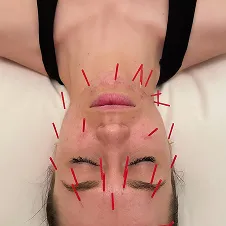Clinical focus
Women’s Health and Hormones
Hormonal imbalances affect women of all ages and is an area of focus I see a lot of in practice as a naturopathic doctor. Our endocrine system is quite complex and is responsible for producing and regulating hormones. Hormonal imbalance involves underproduction or overproduction of various hormones including estrogen, progesterone, thyroid hormones (TSH, T3, T4), other hormones like insulin, cortisol, testosterone, and many more. A naturopathic approach to hormonal imbalance is to figure out the root cause of your symptoms and provide a thorough assessment which includes comprehensive lab testing.
Signs and Symptoms of Hormonal Imbalance
Hormonal imbalances can be quite complex and women often experience many different symptoms as well as experience multiple different hormonal imbalances at once. For example it is common that women could experience thyroid dysfunction, insulin resistance and irregular periods at the same time. A naturopathic doctor can help get to the root cause and restore hormonal balance by providing a thorough assessment of your health and assess your hormone levels to determine what the necessary treatment is. Common symptoms of hormonal imbalance include:
- Painful or heavy periods
- Irregular menstrual cycles
- Mood swings
- Sweet cravings
- Hair loss
- Insomnia
- Unexplained weight loss or weight gain
- Constipation or diarrhea
- Skin changes
- Acne
- Fatigue
- Infertility
- Hot flashes
- Low sex drive
Causes of Hormonal Imbalances
There could be many things involved that can cause a hormonal imbalance in women. Common causes that can affect hormones include but are not limited to thyroid conditions like hypothyroidism or hyperthyroidism, insulin resistance, polycystic ovarian syndrome (pcos), fibroids, endometriosis, stress, eating disorders, insomnia, perimenopause, menopause, environmental toxins, pesticides, etc.


Hormonal Testing
Comprehensive testing is used to help uncover hormonal imbalances. Most common tests include bloodwork and urine hormone testing. Hormonal testing is individualized based on the person’s health history and symptoms.
Naturopathic Care to Help Balance Women’s Hormones
A naturopathic doctor will assess and evaluate your symptoms as well as review the results of lab testing to determine what the appropriate treatment will be to restore hormonal balance. Treatment is based on individual needs and often involves a series of recommendations from diet and lifestyle therapies, botanical medicine, therapeutic supplementation, stress reduction, acupuncture and possibly hormone therapy.

FAQs
Your Questions, Answered
NDs will often run bloodwork as well as use other functional lab testing such as the DUTCH (dried urine test for comprehensive hormones) test to help diagnose hormonal imbalances.
Hormone imbalances can affect both men and women. Women of all ages can experience hormonal imbalances but most commonly women will experience hormone fluctuations during their menstrual cycle, during pregnancy and leading up to perimenopause/ menopause.
Common signs include changes to your menstrual cycle (painful periods, heavy periods, short or long cycles, absence of periods, irritability leading up to your period, etc), mood swings or changes in mood, fatigue, hair loss, fluctuations in weight, etc.






